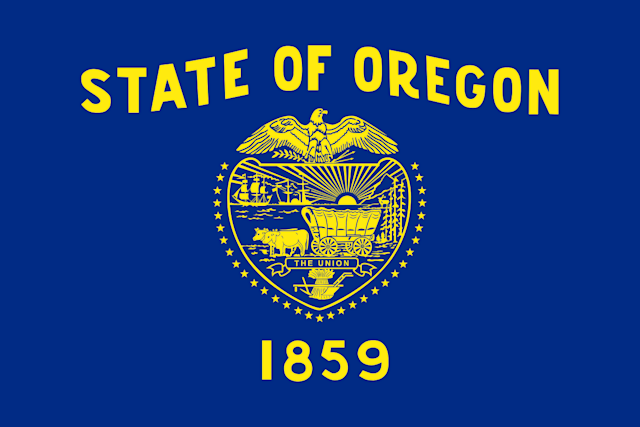

Let us do the work for you! Share your needs with our Concierge team, and they'll book you with our best available top-ranked service providers!
Call us atAn Oregon woman died homeless in 2020 despite having inherited more than $800,000 from one of her parents. Cathy Boone, 49, lost her mother in 2016, but her share of the decedent’s estate remained unclaimed until her own death. Whether Boone, who had mental health and drug problems, was aware that the money was hers and knew how to get it was unclear. What was certain, however, was that the state of Oregon held Boone’s inheritance because she could not be located during the distribution of her mother’s estate. The same thing can happen to Oregon heirs who do not know how the state’s inheritance laws work. To help you understand what happens to money, property, and other assets that people leave behind after death, this article will introduce you to Oregon’s inheritance laws. The topic will cover, among others, what a will is, how it is executed, and when it may be contested. For deaths without a will, the article will discuss how inheritance is divided among heirs, from spouses and children to other surviving relatives.
As to the age requirement, an exception applies to emancipated minors, as they are allowed to make a will before they turn 18.
If you want to make sure your assets and property go to your desired beneficiaries, you can write a will with the help of an estate planning attorney.
To ensure that a will is valid, the owner, called the testator, must sign the document before at least two witnesses. If someone else is signing the testator’s name, they must do so in the testator’s presence and following their instructions.
The witnesses must also sign the will to attest that they heard or observed the testator acknowledge his or her signature or direct someone to sign his or her name. Oregon also requires that the witnesses be at least 18 years old. They must sign the will within a reasonable time before the testator’s death.
While it is not prohibited in Oregon to have an heir or beneficiary stand as a witness, it is best to avoid this situation to prevent any issues later on.
The distribution of a decedent’s assets takes place in a legal process known as probate. Here, assets like cars, real estate, stocks, and bonds will be cleared of their titles and transferred to their new owner, usually the beneficiary stated in the will.
The probate process has a protective aspect, which includes preventing creditors from claiming a share of the decedent’s property. If you inherit property that creditors are going after, a real estate attorney could shed light on the issue and help you protect what rightly belongs to you.
Investments, tenancy in common, solely owned property, and interest in a corporation or partnership are examples of assets that are required to go through probate in Oregon.
In contrast, there are items that the decedent owned that do not require probate. These include jointly-owned properties, trust assets, retirement accounts, and life insurance policies.
Moreover, in Oregon, it is permitted to pass assets directly to the named beneficiary without the need for probate if they have transfer-on-death or pay-on-death designations.
Probate may seem easy, as it is often viewed as simply distributing the assets of a person who has passed away. However, there may be instances where the heirs and beneficiaries named in a will might feel like they are not receiving what was supposed to be given to them.
Some beneficiaries may suspect forgery or fraudulent actions by other beneficiaries. This is where the process of contesting a will comes in.
In Oregon, any individual who has a legitimate interest in a will can dispute it if they have evidence of any of the following:
Contesting a will has a time limit, which is typically four months from the date information to devisees, heirs, or other interested parties about the probate of the will was mailed or delivered.
The person contesting the will must also inform the heirs and devisees of their petition. In the event that the beneficiaries of a will are charities, religious organizations, or public benefit corporations, information is also required to be sent to the Attorney General.
Wills are within the expertise of probate attorneys. These legal professionals assist with the settlement of an estate and represent parties in probate litigation, which may include will disputes.
A court-appointed individual will oversee the distribution of the decedent’s assets in accordance with Oregon’s laws on intestate succession.
Intestate is a term used to describe a situation where a person passes away without a valid will. In this event, the probate court will designate a personal representative to supervise the distribution of the decedent’s assets and ensure the settlement of any remaining bills and taxes.
The personal representative is usually the spouse, an adult child, or another close relative of the decedent. The probate process can be stressful for family members, particularly if there is contention regarding the person in charge.
If a person passes away without leaving a valid will, the surviving spouse will be entitled to receive their intestate share. If the decedent leaves no living children from the current or previous relationship, the current surviving spouse will inherit all the assets by default.
However, if the decedent has children from the previous relationship, the current surviving spouse inherits only half of the estate.
Oregon’s elective share statute is designed to ensure that a surviving spouse is protected from receiving nothing in case they have been excluded from the decedent’s will.
For instance, if the surviving spouse is not mentioned in the will and the decedent passes away on or before January 1, 2011, in Oregon, the surviving spouse will be given the right to claim their elective share from the decedent’s estate. This share will be determined by how long the couple has been married. The amount can range from 5% to 33% of the augmented estate.
During the calculation process, the Oregon court will look at all the decedent’s assets, not just those mentioned in the will. The primary goal of this statute is to guarantee that the surviving spouse will not be left with nothing, especially if they have been married to the decedent for a long time.
The surviving spouse’s right to elective share is not automatically given to them under Oregon law. They must first file a motion to exercise the elective share within nine months after the decedent’s passing.
If a married person passes away in Oregon, the surviving spouse is entitled to allowances and exemptions under the law, which include the following:
The surviving spouse has the right to request financial support from the court, which will decide the amount based on what the surviving spouse needs for their well-being. This is a formal request to the court, which requires a petition and hearing.
In Oregon, the surviving spouse can stay on the property they shared with their deceased spouse for up to one year after the spouse’s death.
If a couple in Oregon is unmarried and one of them passes away without a will, it will be difficult for the surviving spouse to get anything from the decedent’s assets.
For this reason, some couples rush into marriage, especially if one of them is seriously ill. Through marriage, the surviving spouse will be given rights to the decedent’s assets.
However, getting married on a deathbed often leads to disputes, especially if the dying person has children from previous marriages, causing the previous family to challenge the marriage’s validity, in which case the parties might need a family lawyer’s help.
If a person passes away without a will in Oregon, their children will receive a share of their assets through intestate succession. The size of this share will be based on how many children the decedent had and whether they are children from previous relationships or if their parent is the current surviving spouse.
Moreover, the state must first identify and recognize them as the decedent’s legal children before they can inherit under Oregon’s intestate laws. The table below lists the conditions that the state considers, along with how much share the child can get.
Their intestate share
Legally adopted children
Will get the same share as the decedent’s biological children
A child born out of marriage
Will receive an intestate share, provided the decedent has acknowledged that this is their child and established their paternity with them under Oregon law
Foster children and stepchildren the decedent did not legally adopt
Will not receive a share of the decedent’s assets under Oregon’s intestate law, along with children that the decedent placed for adoption
The decedent’s grandchildren
Will receive a share of the decedent’s assets only if their parent is no longer alive to inherit the share
A child born after the decedent passed away
Will receive their share if they survive at least 120 hours after birth, as long as it is proven that they are the decedent’s biological child
A child born from the decedent’s genetic material
Will receive a share of the decedent’s assets if they are conceived using the decedent’s genetic material and conception happens within two years of the decedent’s passing
A person may die without a spouse or children. This is when other relatives may inherit the decedent’s estate.
If the decedent has parents, they will automatically inherit everything. If both parents die before the decedent, then the estate will go to the siblings.
In rare cases where the decedent has no relatives, their property will go to the State of Oregon. This situation is called escheat and will be valid only if the state has exhausted all efforts to locate possible heirs of the decedent.
There are other issues related to Oregon’s inheritance laws besides the rights of family members to a decedent’s estate. These include the following:
Oregon Inheritance Laws That Apply
If someone in Oregon murders a person, the Slayer Statute takes away the right of the suspect to inherit from the decedent. The law applies even if the decedent leaves a will that names the suspect as an heir or beneficiary.
Individuals who are half-blood relatives of the decedent will be treated the same as full-blood relatives. This means that their respective shares of the decedent’s estate will be equal.
Relatives of the decedent who are non-U.S. citizens will receive a share of the decedent’s assets, as long as they are named in the will or have been promised property by the decedent.
There is no inheritance tax in Oregon, but the state collects what it calls a transfer tax, otherwise known as an estate tax.
An estate tax is different from an inheritance tax. Estate tax is owed before the decedent’s assets are distributed, while inheritance tax is paid by the heir or beneficiary after they receive their share of the estate.
In Oregon, there’s a $1 million threshold for estate taxes, meaning estates worth more than that amount are taxable. The Oregon estate tax rate ranges from 10% to 15%. There is an exception, however, if the surviving spouse is inheriting all of the decedent’s estate. No transfer tax is required in this case.
The following requirements are worth noting when it comes to estate taxes in Oregon:
To help you further navigate the inheritance laws and the probate process in Oregon, here are a few resources you can turn to for information and advice.
Oregon Law Help’s Self-Help Probate page provides fundamental information about the probate process in the state. These include an overview of the process, the costs involved, and the duration. Use the search bar on the page to find the information that you need. This page will also direct visitors to the Oregon State Bar page for the probate process.
The Commons Law Center provides legal solutions to low- and middle-income residents in Oregon. Its services range from estate planning and probate to family law and tenant eviction defense. Its probate program involves handling tasks that involve administering probate or trusts and avoiding beneficiary disputes.
Oregon’s Estates Administration Program has been established to protect the assets of individuals who passed away without a will and heirs to their estate. This program will administer their estates until the legitimate heirs are located. Other than locating the beneficiaries, the administering process will also involve paying the decedent’s creditors and estate taxes, identifying and securing assets, and coordinating funeral arrangements.
Expertise.com Staff Author
Step into the world of Expertise.com, your go-to hub for credible insights. We don't take accuracy lightly around here. Our squad of expert reviewers, each a maestro in their field, has given the green light to every single article you'll find. From rigorous fact-checking to meticulous evaluations of service providers, we've got it all covered. So feel free to dive in and explore. The information you'll uncover has been stamped with the seal of approval by our top-notch experts.



